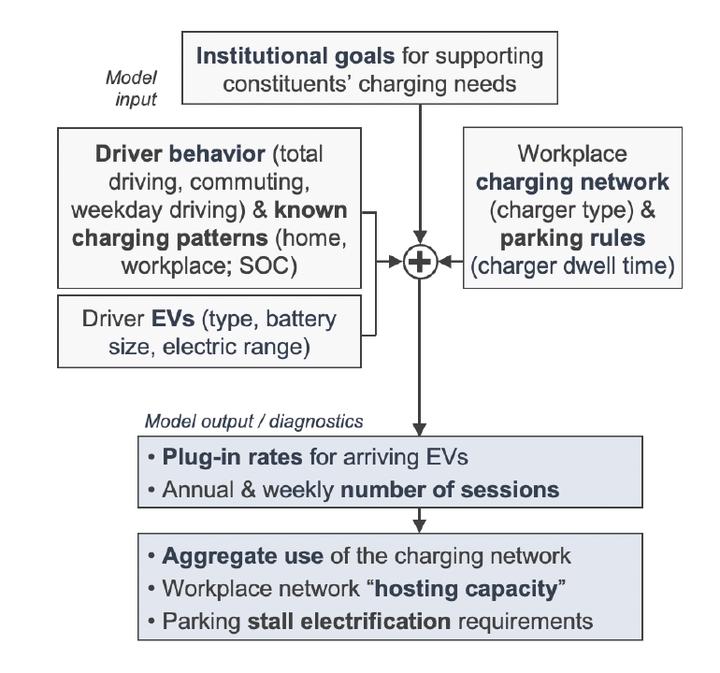Design of workplace and destination-based EV charging networks considering driver behavior, habits, and preferences

Abstract
Many workplaces and other institutions are grappling with how to support their employees and other constituents who drive electric vehicles (EVs) by providing local charging services. We develop a novel driver-centric approach for designing workplace EV charging networks that estimates constituents' charging needs based on their driving and charging habits and determines the optimal number and type of chargers to meet these charging needs. Unlike most prior literature, our approach explicitly incorporates the behavior of an institution’s commuters to guide institutional strategy for deploying and expanding real-world workplace charging services. We demonstrate our approach at the University of California San Diego (UCSD) EV network of 439 charging ports using behavioral data derived from surveys of 800 EV drivers. We find that driver behaviors significantly affect network usage and optimal design. For example, using the data of UCSD drivers instead of regionally-averaged data (a common approach) increases the number of workplace sessions initiated by drivers fivefold and EV network size threefold. Among driver behaviors, drivers’ tendency to recharge at relatively high state-of-charge dominates, increasing network size by 50 percent alone—while also implying less need for highcapacity chargers. In addition to driver behavior, we find that an institution’s goals for supporting drivers, which are important for equity, also have a large effect on commuters’ network usage and network design.